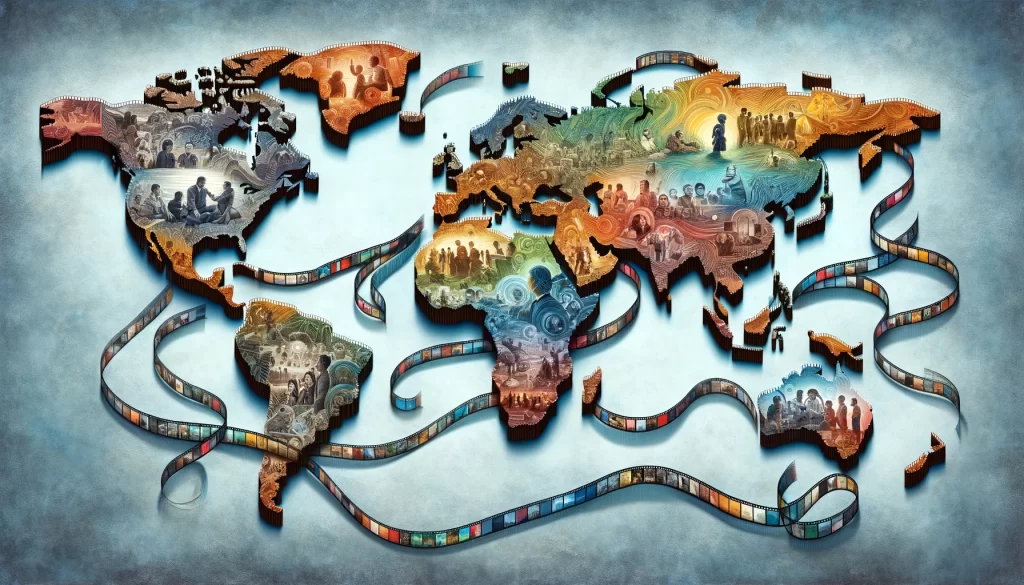This year, the movies nominated for the Best Documentary at the Oscars are not the easiest to watch—but that doesn’t mean you should skip them. Even though they tackle tough topics like war, injustice, and personal struggles, there’s something special about each one that makes them worth your time.
Why You Should Watch These Movies
First off, these documentaries are incredibly well-made. They’re not just random clips thrown together; they’re carefully crafted stories that show the filmmakers’ creativity and deep understanding of the subjects. Yes, they might make you think about heavy issues, but they’re also beautifully shot and put together, which makes them stand out.
The films come from all over the world, showing us stories we might not hear otherwise. Some people have complained about American films not making the cut, but once you see these documentaries, you’ll understand why they were chosen. Each one has earned its place for being unique and compelling.
A Closer Look at Each Nominee
– 20 Days in Mariupol: This film brings us into the heart of Ukraine during the early days of an attack by Russian forces. The footage, gathered by brave journalists, shows the harsh realities faced by civilians, especially in hospitals struggling to care for the injured. The way the film is put together helps us see the bigger picture behind the short clips we might catch on the news.
– To Kill a Tiger: This movie is visually stunning, which might seem strange considering it deals with the heavy topic of a young girl’s trauma after being attacked. It shows the struggle of her father to seek justice in a society that wants him to just let it go. The film is a powerful mix of beauty and pain, showing the resilience of a family in the face of adversity.
– Four Daughters: This film uses a mix of interviews, reenactments, and behind-the-scenes footage to tell the story of a mother and her daughters, two of whom have disappeared. It’s a unique approach that helps explore the family’s emotions and memories in a deep and meaningful way.
– Bobi Wine: The People’s President: From Uganda, this documentary follows Bobi Wine, a musician turned politician, as he challenges the long-standing president. His journey is both inspiring and dangerous, highlighting what happens when someone tries to bring change in a place where democracy is under threat.
– The Eternal Memory: Without any interviews, this documentary focuses on a couple dealing with Alzheimer’s disease. It’s a touching portrayal of love and commitment, showing how they cope with the challenges of memory loss and finding joy in the moments they share.

Why These Stories Matter
Even though these topics might seem distant or too serious, they’re important because they show real-life challenges people face around the world. Watching these documentaries can open our eyes to different realities and inspire us to think more deeply about the world and our place in it.
Remember, films, especially documentaries, are more than just entertainment. They’re a window into experiences and issues we might not encounter in our daily lives. So even if they seem tough to watch, give these documentaries a chance. You might learn something new, feel inspired, or simply gain a new perspective on the world.
This article is based on the following article:
https://www.npr.org/2024/02/29/1234533899/oscar-documentaries

Background Information
By understanding these basic concepts, the reader will be better equipped to appreciate the significance and depth of the documentaries mentioned in the article, as well as the broader context of the Oscars and the role of documentary filmmaking in society.
The Oscars
– What Are the Oscars? The Oscars, officially known as The Academy Awards, are a set of awards for artistic and technical merit in the film industry. Given annually by the Academy of Motion Picture Arts and Sciences (AMPAS), the awards recognize excellence in cinematic achievements as assessed by the Academy’s voting membership.
Documentary Films
– What Is a Documentary? A documentary film is a non-fictional motion-picture intended to “document reality, primarily for the purposes of instruction, education, or maintaining a historical record.” Documentaries are made to explore real-life topics, people, and events. They can educate, inform, and sometimes persuade viewers about certain issues.
International Films
– Why International Films? Films made outside of the United States are considered international films. These films can offer diverse perspectives and stories from different cultures, societies, and political landscapes, enriching viewers’ understanding of the world.
Specific Themes Mentioned
1. War and Violence: These topics often include conflicts between countries or groups within a country, the impact of war on civilians, and the physical and psychological trauma associated with violence.
2. Oppressive Governments: This refers to governments that control their citizens in a harsh and unfair way, often limiting freedoms and rights.
3. Medical Fragility: This theme might cover issues related to healthcare systems, access to medical care in crisis situations, or the impact of diseases on individuals and communities.
4. Sexual Violence and Justice: These stories can involve the challenges victims face in seeking justice, societal attitudes towards sexual assault, and the personal and legal battles that ensue.
5. Democracy and Political Change: This includes stories about efforts to achieve or maintain democracy, political campaigns, and the struggles of those who challenge authoritarian regimes.
6. Mental and Physical Health: Documentaries may explore stories about dealing with diseases like Alzheimer’s, the emotional and physical strain of illness, and the strength found in human relationships.
Understanding Documentaries
– Purpose of Documentaries: Beyond entertainment, documentaries aim to inform and engage viewers on topics of social, political, and personal importance. They can challenge our perceptions and encourage us to think critically about the world.
– Making of Documentaries: Creating a documentary involves thorough research, interviews, and often capturing or compiling footage over long periods. The process is aimed at presenting an honest and compelling narrative about real-life events or issues.
Please subscribe to Insight Fortnight, our biweekly newsletter!
